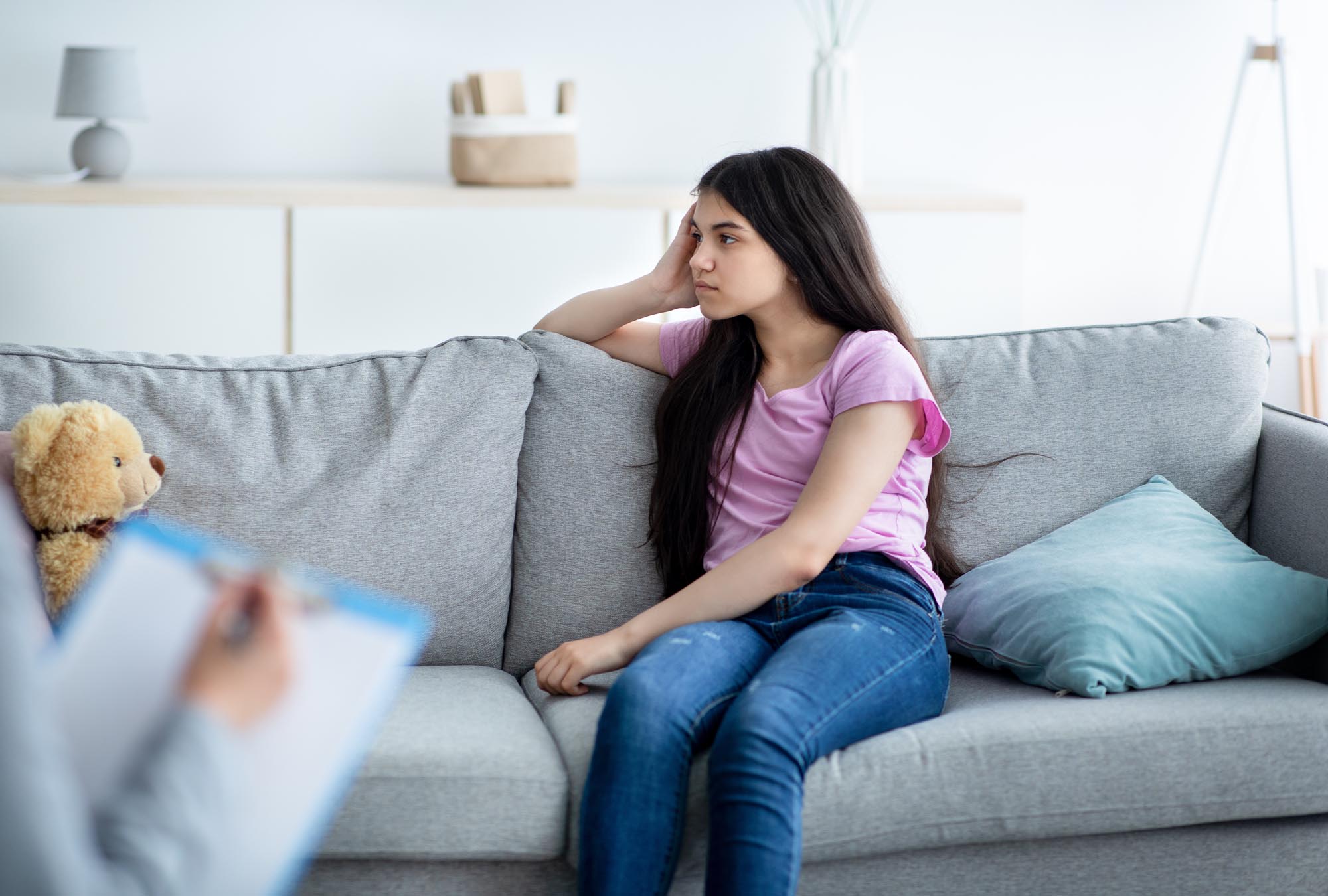Teen ADHD
Watching your teen grapple with ADHD can be confusing, exhausting, and emotionally draining. At Build Bright Care Group, we understand how overwhelming it is to navigate your child’s needs while trying to support their growth. Located in Los Angeles, California, our residential treatment program offers specialized, evidence-based care for adolescents with Attention-Deficit/Hyperactivity Disorder (ADHD). With a compassionate team and a personalized approach, we’re here to help your teen build focus, resilience, and the skills they need to thrive—both now and in the future.
Find out if your insurance will cover the cost of treatment.
Teen ADHD Treatment in Los Angeles, California
Understanding and Helping Your Teen With ADHD:
At Build Bright Care Group, we acknowledge the significant challenges families face when dealing with Attention-Deficit/Hyperactivity Disorder (ADHD) in adolescents.
Understanding the nuances of ADHD is the first step in assisting your child. Adolescence, a pivotal period characterized by growth and self-exploration, can be complicated by the presence of ADHD symptoms. This neurodevelopmental disorder goes beyond typical teenage behaviors, requiring a supportive and understanding approach from parents.
Embracing open communication, patience, and a non-judgmental attitude are essential. Equipping oneself with knowledge about ADHD and available treatment options lays the groundwork for effective support and intervention.
What Is Attention Deficit Hyperactivity Disorder (ADHD)?
Attention-Deficit/Hyperactivity Disorder (ADHD) is a neurodevelopmental disorder that is characterized by a persistent pattern of inattention and/or hyperactivity-impulsivity that interferes with functioning or development.
These symptoms typically manifest before the age of 12 and occur at least across two settings, such as home, school, or social situations. The symptoms have been present for at least 6 months and also cause significant impairment in social, academic, or occupational functioning.
ADHD is a neurodevelopmental disorder that typically persists into adulthood, although symptoms may change or improve over time. While some individuals may experience a reduction in symptoms as they mature, ADHD is considered a lifelong condition that may require ongoing management and support.
As a parent, understanding the ADHD symptoms can helps you recognize the specific challenges your teen may be facing and guide you to find appropriate support and treatment options.
What Are the Typical Teen ADHD Symptoms?
The symptoms of ADHD in teens are organized into two categories:
Have in mind that the symptoms and behaviors of ADHD in teens can manifest in various ways, and they may differ from person to person. However, some typical ADHD symptoms include:
1) Inattention Symptoms:
- Difficulty sustaining attention in tasks or activities.
- Making careless mistakes in schoolwork or other activities failing to give close attention to details.
- Doesn’t seem to be listening when spoken to directly, as if the mind was elsewhere.
- Often does not follow instructions and fails to complete chores, schoolwork, or other tasks.
- Difficulty organizing tasks and activities (struggles to manage sequential tasks or keeping belongings or materials in order, messy, poor time management, fails to meet datelines).
- Avoidance, dislike, or reluctance to engage in tasks that require sustained mental effort (ex. completing school homework, forms, etc).
- Losing -or forgetting- items necessary for tasks or activities (ex. books, school materials, eyeglasses, cellphone, keys, etc).
- Easily and often forgetful in daily activities (ex. doing chores, returning calls, etc.)
- Being easily distracted by extraneous stimuli (by things happening around or by unrelated thoughts).
2) Hyperactivity-Impulsivity Symptoms
- Fidgeting with hands or feet or squirming in seat.
- Leaving seat in situations where remaining seated is expected (ex. leaves seat in the classroom or church/synagogue, etc).
- Running or climbing excessively in inappropriate situations or feeling restless.
- Difficulty engaging in leisure activities quietly.
- Often being “on the go” or acting as if “driven by a motor” (ex. unable to be or uncomfortable being still for extended periods of time in a restaurant, class, etc.)
- Often talks excessively.
- Blurting out answers before questions have been completed (ex. completing people’s sentences or unable to wait for turn in conversation).
- Difficulty waiting one’s turn (ex. difficulty while waiting in line).
- Interrupting or intruding on others’ conversations or activities (ex. butts in conversations/games/activities, using other people’s things without asking or getting permission, etc.).
Different ADHD Diagnostic Presentations in Teens Include:

ADHD Predominantly Inattentive Presentation
The ADHD inattentive type of symptoms are present and predominant in the teen’s life, but the hyperactivity/impulsivity type of symptoms are not as prevalent over the past six months.
ADHD Predominantly Hyperactive/ Impulsive Presentation
The ADHD hyperactivity/impulsivity type of symptoms are present and predominant in the adolescent’s life, but the inattentive type of symptoms are not as prevalent over the past six months.
ADHD Combined Presentation
When both the inattentive and hyperactivity/impulsivity types of symptoms have been present in the adolescent’s life for the past six months, but not predominantly one type or the other, but both.
Other Specified ADHD or Unspecified ADHD
These two diagnoses apply when the symptom presentation does not fit neatly into one of the other three defined subtypes, or when there is incomplete information available for a more specific diagnosis.
Is ADHD Related to Other Mental Health Conditions?
Yes, ADHD frequently co-occurs with other mental health conditions, including depressive disorders, anxiety disorders, Oppositional Defiant Disorder (ODD), Conduct Disorder, Autism Spectrum Disorder, and substance use disorders.
Specific learning disorders (such as dyslexia) also tent to co-occur with ADHD. Some individuals with ADHD may also have Tourette’s syndrome or tic-disorders.
What Causes ADHD in Teens?
Research continues looking for the exact cause of ADHD since it is not fully understood yet. Some data suggest that it may be related to genetic, neurobiological, and/or environmental factors.
ADHD is elevated in the first-degree biological relatives of individuals with ADHD. The heritability of this disorder is substantial.
Family interaction patterns in early childhood are unlikely to cause ADHD, but may influence its course or contribute to the secondary development of conduct.
What Are the Long-Term Effects of Untreated ADHD in Teens?
The long-term effects of untreated ADHD in teens can be profound and may include academic struggles, difficulties maintaining relationships, low self-esteem, higher risk of substance abuse, challenges with employment, and ongoing issues with impulse control and time management. Untreated ADHD can also lead to increased risk of accidents, injuries, and legal troubles.
By early adulthood, ADHD is associated with an increased risk of suicide attempt, primarily when comorbid (co-occurring) with mood, conduct, or substance use disorders.
Untreated ADHD in teens can also increase the risk of developing other mental health conditions such as depression, anxiety disorders, and substance use disorders. Addressing ADHD early with appropriate interventions is essential to mitigate these long-term consequences and support the teen’s overall well-being and success.
Treatment Options for ADHD Is Adolescent
Treatment for ADHD typically involves a multimodal approach that may include:
Behavioral Interventions and Therapy:
Medication Management:
Educational Accommodations:
Support for Parents and Caregivers:
Teen Residential Treatment for Teen ADHD
Our residential treatment program offers intensive support in a structured, therapeutic environment where teens can fully focus on mental health and recovery. With 24/7 access to mental health professionals, adolescents receive immediate support during challenging moments.
This comprehensive program includes individual and family therapy, support groups, medication management, and experiential therapeutic activities—each tailored to the unique needs of teens with ADHD. In this safe, controlled setting, teens build real-world coping skills and practice managing behaviors and emotions.
Residential care also fosters peer connection, helping teens feel less alone in their struggles. For parents, it offers peace of mind, knowing their child is receiving consistent, high-quality care aimed at long-term success.
Help Is Just a Call Away
If your teen is struggling—emotionally, behaviorally, or in ways you can’t quite explain yet—we’re here to listen and support you. At Build Bright, we specialize in compassionate, comprehensive residential care for adolescents facing a wide range of mental health challenges.
Our Comprehensive Adolescent Care for ADHD

Individual therapy
Family therapy
Group therapy
Psychiatric services
Medication management
Mindfulness
Journaling
Coping skills groups
Yoga
Addictions & use of technology groups
Music therapy
Art assisted therapy
Physical fitness
Life skills groups
Surf therapy
Outings & recreational activities
School & IEP support
Get to Know Build Bright


Our Program
We're changing lives with our creative program, sparking innovation and empowering individuals along the way.

Our Approach

When Should You Consider Residential Treatment?
We help you determine the right time for residential treatment consideration.
Frequently Asked Questions
Would my teen with ADHD benefit from residential treatment?
How can I help my teenager with ADHD succeed in school?
How can I talk to my teenager about their ADHD diagnosis?
Do you accept health insurance?
Teen ADHD Blog
Navigating the mental health journey of teens with neurodivergence can feel overwhelming for many parents. Whether your child has been diagnosed...
As a parent, watching your teen navigate the challenges of ADHD in teens can be overwhelming. This neurodevelopmental disorder affects more than...










